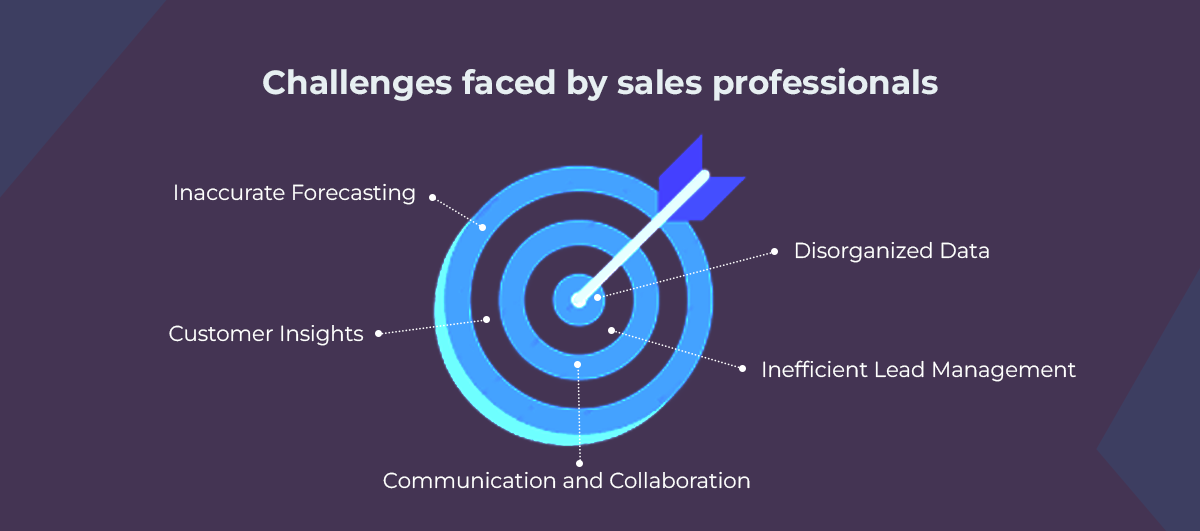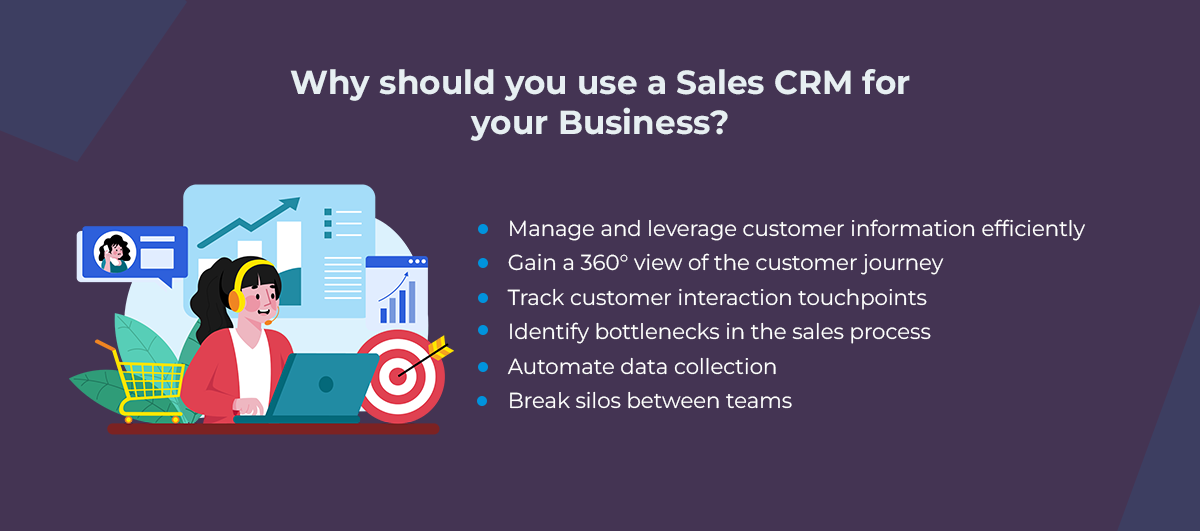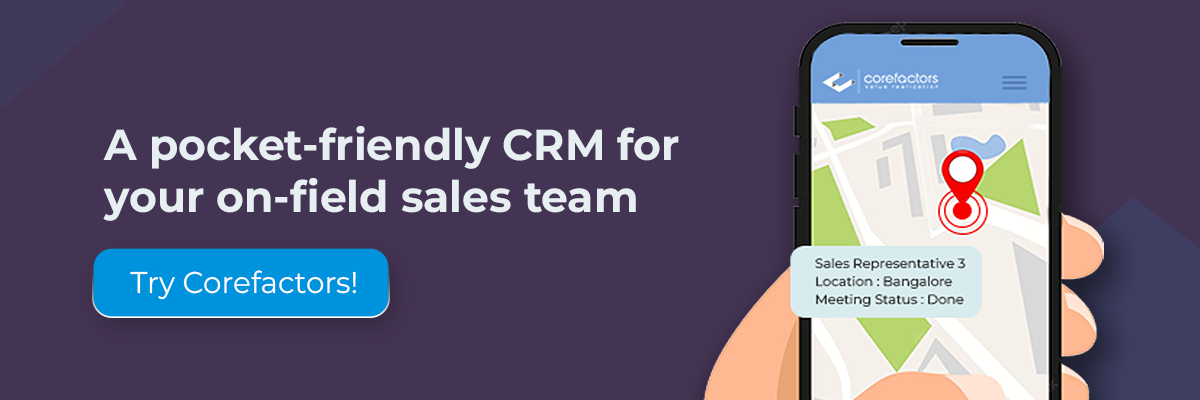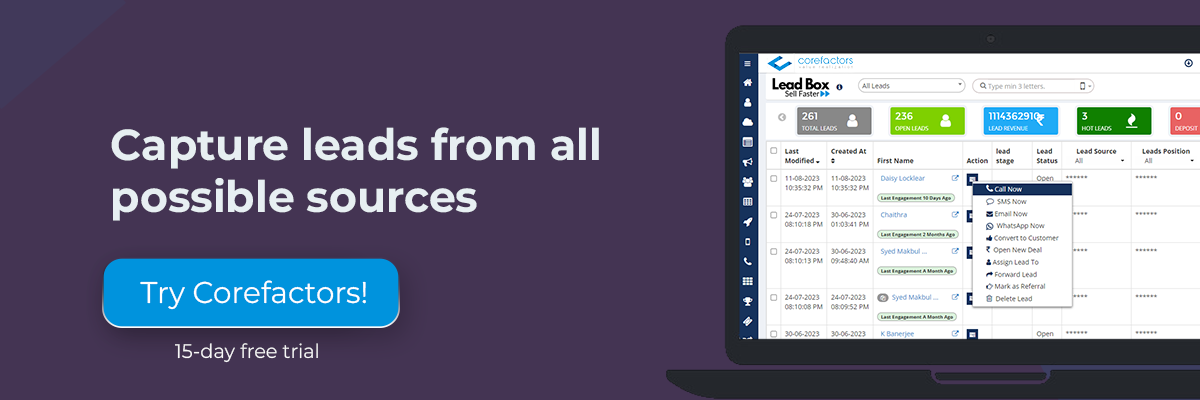Are you doing everything you can to implement the best sales management system and still see areas for growth? You need a robust sales CRM software.
All businesses are increasingly recognizing the importance of good customer relationship management (CRM) practices. Enriching the customer experience and maintaining a good relationship have become prerequisites to a good sales cycle.
According to industry analysis, the global CRM market size was valued at USD 58.82 Million in 2022 and it is set to see a significant annual compound growth rate of 13.9% from 2023 to 2030.
What is a sales CRM and how can it be beneficial for your business? Let’s explore.
What is a Sales CRM Software?
CRM software for sales enables the sales team in efficient customer relationship management. It helps every member of the team to manage and engage with prospects or customers at every touchpoint throughout the sales process.
A sales CRM is like a sales management software that also acts as a sales force automation tool.

Such sales automation tools and features ensure that the sales agent is actually at the front lines maintaining contact with the customer and doing the selling part.
Challenges Faced by The Sales Team
The sales team plays a crucial role in growing your business and generating revenue. However, their daily tasks often come with challenges that can hinder productivity.

Disorganized Data: Sales professionals often find themselves drowning in a sea of data. This data can be fragmented across spreadsheets, email inboxes, and handwritten notes. Trying to navigate through this disarray can lead to missed opportunities and crucial information falling through the cracks.
Inefficient Lead Management: Without a systematic way to prioritize leads, they may find themselves chasing after unqualified prospects or failing to engage with high-potential leads. This can result in wasted time and missed sales opportunities.
Communication and Collaboration: Without a proper system in place, professionals may struggle to maintain a clear record of interactions with leads and customers, leading to misunderstandings, missed follow-ups, and potentially lost deals.
Inaccurate Forecasting: Without accurate and up-to-date data, forecasting can be wildly inaccurate. This lack of precision can lead to overestimation or underestimation of sales, impacting business decisions and resource allocation.
Customer Insights: Limited insights can lead to generic sales pitches that may not resonate with all prospects. This affects the conversion rate.
The adoption of a sales CRM simplifies the sales funnel management process and can be a game-changer in addressing these challenges.
How does a Sales CRM Improve your Business?
A Sales CRM system offers advantages that extend beyond sales teams and can significantly benefit your entire business operations, particularly in the realm of customer service.
CRM software plays a pivotal role in enhancing how you manage and leverage customer information, which, in turn, can have a positive impact on your customer-business relationships and ultimately lead to increased sales.
Why should you use a Sales CRM for your Business?

One of the standout features of CRM tools is their ability to provide comprehensive insights into the entire customer journey. This functionality allows you to precisely track and understand the various touchpoints and interactions a customer has with your business.
By having a clear view of this journey, you gain the capability to pinpoint precisely what is required to secure a sale. This holistic approach to customer relationship management not only strengthens your sales efforts but also bolsters the overall customer service experience.
An efficient sales CRM also extends its benefits to other customer-facing teams. It can benefit marketing efforts by automating journeys, engagements, and other campaign activities.
Things to Consider Before Choosing a Sales CRM Software
With the functionality and benefits of using an online sales CRM out of the way, let’s have a look at the factors to keep in mind before choosing one.

- Ease of Use
A great user interface is crucial for the rapid adoption and efficient utilization of a sales CRM system. Be on the lookout for a platform that doesn't require extensive training for your sales team to get started.
An easy-to-use CRM system minimizes the learning curve for your sales team, enabling them to quickly adapt and focus on what they do best: selling. Consider how the CRM's interface is designed - is it clean, intuitive, and logically organized?
For example, the Corefactors AI CRM interface offers a visually appealing and user-friendly experience, making it easier for sales representatives to navigate and input data.
2. Customizability
Every business is unique, and your CRM should reflect that. Ensure that the CRM software allows you to customize fields, workflows, and reports to align with your specific sales processes.
Customization is about tailoring the CRM to your unique business processes and needs. Beyond just adding fields, a truly customizable CRM should allow you to automate workflows, create custom sales stages, and generate reports specific to your industry or niche. Leveraging sales automation tools like Clevenio can further enhance your CRM by streamlining tasks and boosting overall efficiency.
For example, if your business operates in the fintech industry, you may require a CRM that can cater to the specific demands of financial software development services. It should help you manage the data of loan applicants, make data-driven investment recommendations, manage high net-worth clients, and identify cross-selling opportunities.
3. Mobile-friendliness
Your sales team should have access to an online sales CRM platform on the go. The CRM you should have a mobile-friendly application, especially if you have an on-field sales team.
Corefactors CRM mobile app enables your sales representatives to access critical information, update leads, and close deals from their smartphones or tablets, enhancing productivity.
It comes with a geo-tracking feature that helps leaders monitor the status of their sales team. Sales representatives can efficiently plan their routes, schedule client visits, and optimize their sales territory management.
This level of mobile-friendliness not only boosts productivity but also enhances responsiveness and the overall customer experience.

4. User-centricity
A user-centric sales CRM design goes beyond aesthetics, it considers how the CRM enhances the daily workflow of your sales team.
A sales CRM built with user-centricity in mind will have communication tools like email, chat, and telephony seamlessly integrated. This means sales reps can send emails, make calls, or initiate chats directly from the CRM interface.
All communication history should be automatically logged, eliminating the need to switch between multiple applications. This unified approach ensures that your sales team has a complete view of their interactions with each lead or customer, leading to more informed conversations.
5. Scalability
A growing business should always choose a sales CRM that is capable of accommodating growth. It should be able to seamlessly handle an increase in data, users, and complexity as your business expands.
You should consider not only the scalability of the software but also the pricing model; it should be flexible enough to align with your growth trajectory.
6. Integrations Supported
Integration capabilities are essential for creating a connected ecosystem of tools that support your sales efforts.

Social media platforms are rich sources of potential leads. Integrating your Sales CRM with social media networks like Facebook allows you to automatically capture and import leads' contact information and interactions. This streamlines lead generation efforts and ensures that no valuable lead data is missed.

7. Automation
Automation features can significantly boost your team's productivity by handling repetitive tasks, such as lead scoring, email follow-ups, and appointment scheduling. Look for a CRM that offers workflow automation, lead nurturing, and AI-driven insights.
Automation reduces the manual, repetitive tasks that sales teams often face. Sales representatives can reclaim valuable time that they can redirect towards more strategic and revenue-generating activities, such as building relationships with prospects and closing deals.
Key Takeaways
The sales process is a key parameter in revenue generation and is closely interconnected with the activities of other customer-facing teams like marketing, support, and customer success.
Choosing the correct sales CRM software can help your business better nurture customer relationships, which is a critical aspect of sales. In the world of sales, where time is money and every lead counts, the challenges faced by sales teams are no laughing matter.
By simplifying processes, automating tasks, and organizing data, a sales CRM liberates salespeople from the shackles of administrative tedium, freeing them to focus on what truly matters: building relationships, closing deals and making those sales figures soar.
Are you ready to empower your sales team with the best superpower?







